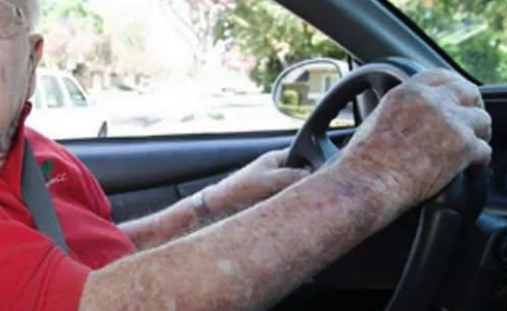Sad News for Drivers Over 70: Are Older Drivers Still Fit to Drive?
Driving is a symbol of independence, but as we age, questions about safety behind the wheel naturally arise. For drivers over 70, new discussions and regulations may soon affect their ability to get behind the wheel. The debate often comes down to a key question: should older drivers be required to take tests to ensure they’re still capable of driving safely, much like retaking an exam? While age alone isn’t necessarily a barrier, certain physical and cognitive signs should prompt caution.
Driving After 75: A Benefit or a Risk?
A recent tragic incident in La Rochelle, France, has reignited this discussion. An 83-year-old driver collided with a group of children on bicycles, causing injuries. Reports indicate the driver was going the wrong way, raising concerns about the safety of elderly drivers.
This accident forces society to ask a difficult but important question: at what age does driving become too risky? While many seniors maintain excellent reflexes and judgment, others may struggle with vision, hearing, or attention span—all critical skills for safe driving.
What the Data Shows
According to the Road Safety Authority, drivers over 75 are involved in accidents at roughly the same rate as young drivers aged 18 to 24. While this may seem surprising, it highlights a key point: age isn’t the only factor in driving safety.
Younger drivers often take risks due to inexperience or overconfidence, while older drivers may face natural physical and cognitive decline. Slower reaction times, reduced vision, hearing loss, and difficulty concentrating can increase the likelihood of accidents, especially in complex traffic situations.
Signs That Older Drivers Should Be Cautious
Rather than focusing solely on age, experts suggest monitoring certain warning signs that indicate it may be time to limit or modify driving:
-
Declining vision or hearing, especially at night or in busy traffic
-
Slower reflexes and difficulty responding quickly to sudden hazards
-
Confusion or disorientation, particularly in unfamiliar areas
-
Medication side effects that impair alertness or coordination
-
Frequent minor accidents or near misses, signaling reduced control
Families and doctors can play an important role in supporting older drivers, helping them transition safely when needed while maintaining independence as much as possible.
Striking the Balance
Driving is about more than getting from point A to point B—it’s linked to freedom, social engagement, and personal autonomy. Yet safety must remain a priority, not just for older drivers but for everyone on the road.
Some countries have implemented mandatory driving tests or health checks after a certain age, ensuring that seniors remain capable drivers. Others rely on voluntary assessments or family observations. The challenge lies in balancing independence with public safety, making sure older drivers are supported rather than penalized unnecessarily.
Conclusion
While age alone does not determine a person’s driving ability, recent incidents and statistical data show that caution is essential. Drivers over 70, particularly those over 75, may need regular evaluations to ensure they can still navigate roads safely. Awareness, preventive measures, and supportive regulations can help protect both older drivers and the wider community while preserving dignity and independence for senior citizens.

